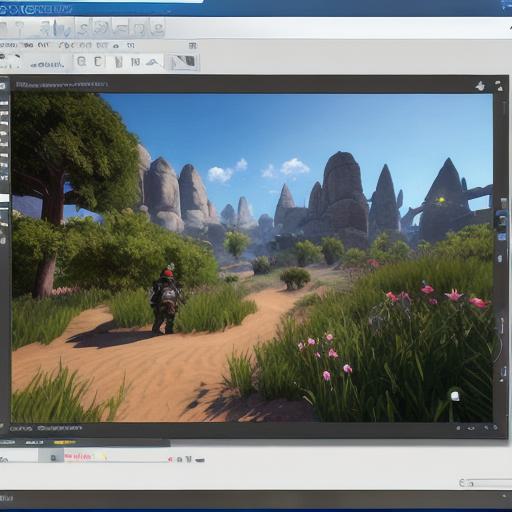Introduction:
With the increasing complexity of game development, it is becoming increasingly important for developers to manage their codebases efficiently. One of the most effective tools available for this purpose is version control. Version control systems allow multiple developers to work on the same codebase simultaneously, track changes over time, and collaborate effectively. In this article, we will explore the benefits of using version control in game development, provide real-life examples of how it can improve productivity and reduce errors, and discuss common version control systems and their features.
- Improved Collaboration:
Version control allows multiple developers to work on the same codebase simultaneously, which can greatly enhance collaboration. Developers can share ideas, make changes, and review each other’s work without overwriting each other’s code. This can lead to faster development times and more efficient use of resources. For example, a team of developers working on a game’s graphics can be making changes to the code at the same time as a developer working on the game’s audio. By using version control, they can ensure that their changes are compatible with each other’s work and avoid overwriting each other’s changes.
- Enhanced Code Quality:
Version control provides developers with a complete history of all changes made to the codebase. This means that developers can easily track down and fix bugs, identify coding errors, and improve the overall quality of the code. For example, if a developer discovers a bug in the game’s graphics code, they can quickly go back to the previous version of the codebase and make the necessary changes to fix it. This ensures that the fix is applied consistently across all versions of the code and reduces the risk of introducing new bugs or errors.

- Increased Productivity:
Version control systems allow developers to work more efficiently by reducing the time spent on manual tasks such as backing up files and restoring previous versions of the code. For example, instead of manually backing up their code before making changes, developers can simply commit their changes to version control and be confident that their code will always be available. This can save significant time and reduce the risk of data loss or corruption.
- Reduced Development Time:
Version control systems also help to reduce development time by allowing developers to quickly identify and fix problems in the codebase. For example, if a developer discovers a bug in the game’s audio code, they can quickly go back to the previous version of the codebase and make the necessary changes to fix it, rather than having to spend hours trying to debug the issue manually. This can greatly reduce development times and improve overall project timelines.
- Improved Code Maintenance:
Version control systems make it easy for developers to maintain their codebases over time. For example, if a developer leaves the team or is no longer working on the project, they can simply hand over their version of the codebase to the remaining team members. This means that the team can continue to work on the project without worrying about losing any important changes or updates. Version control also allows developers to easily revert to previous versions of the code if necessary, which can be particularly useful in situations where a new update or patch is needed.
Case Study: Unity 3D and Version Control
Unity 3D is a popular game engine that supports version control systems such as Git. Many developers use Git to manage their codebases when working with Unity, and this has led to significant improvements in productivity and code quality. For example, a team of developers working on a game using Unity can easily collaborate on the same codebase simultaneously, track changes over time, and fix bugs quickly and efficiently.
Personal Experience:
As a developer myself, I have used version control systems such as Git to manage my codebases for many years. I have seen firsthand how version control improves collaboration, enhances code quality, increases productivity, reduces development time, and improves code maintenance. For example, when working on a project with a team of developers, we were able to make changes to the codebase simultaneously without overwriting each other’s work. This allowed us to work more efficiently and complete the project faster than if we had not used version control.
FAQ:
- What is version control?
Version control is a system that allows multiple developers to manage and track changes made to a codebase over time. It provides a complete history of all changes, allowing developers to easily track down and fix bugs, identify coding errors, and improve the overall quality of the code. - What are some common version control systems?
Some common version control systems include Git, SVN, and Perforce.
